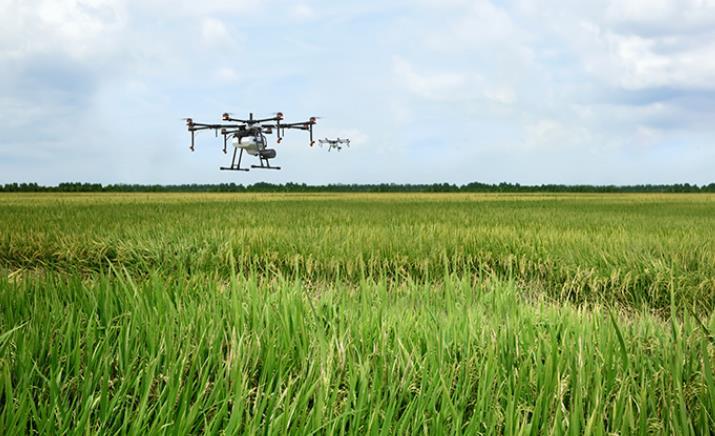This is a demonstration operation of unmanned driving by the staff of Lovol Heavy Industry. After setting parameters such as cutting width and cultivation area before operation, the navigation system guides the agricultural machinery into automatic operation mode. The operator only needs to press the remote control start switch, and the harvester will operate according to the set operation mode and track, with a line spacing error of no more than 2.5 centimeters. Obstacle avoidance, emergency parking, and other operations are also automatically completed, and one person can manage several harvesters.
At the harvesting site in Jiaxiang County, after the unmanned harvester has completed its work, it is time for the unmanned tractor to appear. The Lovol Leopard tractor is towing a rotary tiller to carry out tillage operations on the newly harvested land. Subsequently, the Apos tractor, equipped with an automatic navigation driving system, pulled the seeder under the guidance of the navigation to sow corn seeds.
Applying modern information technology to improve the intelligence level of agricultural machinery and equipment is an important means of implementing smart agriculture and improving the quality and efficiency of agricultural development. In recent years, China has conducted a series of explorations around the application of the Internet of Things, big data, intelligent control, and satellite navigation positioning in agricultural machinery equipment and operations. There have been many successful cases in precision operations in fields, intelligent management of facility agriculture, and intelligent breeding of livestock and poultry.
“After China’s agriculture has experienced the traditional agriculture dominated by human and animal power, with the rapid development of agricultural informatization and agricultural mechanization, it is striding into a new era of smart agriculture,” said Zhao Chunjiang, academician of the CAE Member and director of the National Agricultural Informatization Engineering Technology Research Center. He mentioned at the “2019 Smart Agriculture Youth Academic Seminar” that the key development tasks of smart agriculture in the future will focus on the research and development of agricultural sensors with independent intellectual property rights, the development of large load agricultural UAV plant protection systems, the development of intelligent tractors, the research and development of agricultural robot, the solution of agricultural big data source problems, the development of agricultural artificial intelligence and other aspects.


No reply content